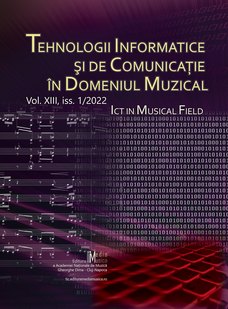Amnezia modernă: cumpănind înțelegerea eronată a inteligenței artifi ciale
Modern Amnesia: Pondering the AI Misconception
Author(s): Mihai PopeanSubject(s): Education, Music, School education, ICT Information and Communications Technologies, Sociology of Education, History of Art
Published by: MediaMusica
Keywords: Neural network; artificial intelligence; Stockhausen; AGI; singularity;
Summary/Abstract: German composer and father of electronic music Karlheinz Stockhausen proposed in 1968 a new music education paradigm whose main goal was the utter transcendence of all human limitations, at least as far as the relationship with sound is concerned. His ideas were captured in a cycle of fifteen intuitive music works, however, the scientific basis that could have substantiated Stockhausen’s ideas with empirical evidence started being developed only on 1971 by AI (artificial intelligence) pioneer Longuet-Higgins. The twenty-first century transhumanistic movement proposes the singularity or transcendence of all human limitations by means of technological augmentation as a possible result of the advent of self-aware artificial intelligence. Stockhausen’s ideas were not new, his model having being found to be based on ancient sound technology and education whose aim was identical. The old model seems to have been forgotten, while the new model assisted by self-aware artificial intelligence is met with skepticism and fear of possible human extinction. Maybe a more practical answer, for the moment, is learning to know AI beyond sensational media titles into actually building private neural networks in order to understand hands-on the reality of what it really is.
Journal: Tehnologii informatice şi de comunicaţii în domeniul muzical
- Issue Year: XIII/2022
- Issue No: 1
- Page Range: 75-84
- Page Count: 10
- Language: English, Romanian
- Content File-PDF

